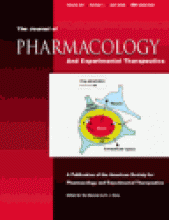Abstract
Methamphetamine (METH) abuse is often characterized by a repeated pattern of frequent drug administrations (binge) followed by a period of abstinence. The effect of this pattern of METH use on cardiovascular function has not been characterized. Radiotelemetry was used to record the cardiovascular responses elicited during three successive METH binges (3 mg/kg, b.i.d. for 4 days) in conscious rats. Each binge was followed by a 10-day METH-free period. The effects of METH administration on vascular reactivity, Bezold-Jarisch reflex function, and cardiac morphology were also evaluated. The pressor responses elicited by the first three doses of METH in the second and third binges were significantly larger than those elicited by the corresponding doses in the first binge. The heart rate (HR) responses elicited by METH were similar within and among the three binges. Ten days after the last binge, the depressor responses elicited by the i.v. injection of sodium nitroprusside, isoproterenol, and acetylcholine were significantly smaller than those elicited before each binge. The arterial pressure and HR responses elicited by phenylephrine were unchanged. Bezold-Jarisch reflex function evoked by i.v. serotonin (10 μg/kg) was significantly altered. The hearts from treated rats showed focal inflammatory infiltrates with abundant monocytes and occasional necrotic foci. These results indicate that this binge pattern of METH administration can significantly alter cardiovascular function and cardiovascular reflex function and produce serious cardiac pathology.
Footnotes
-
This work was supported by a grant from the National Institute on Drug Abuse (DA-08255).
- Abbreviations:
- METH
- methamphetamine
- MAP
- mean arterial pressure
- HR
- heart rate
- 5-HT
- serotonin (5-hydroxytryptamine)
- Ach
- acetylcholine
- PE
- phenylephrine
- Iso
- isoproterenol
- NP
- sodium nitroprusside
- AP
- arterial pressure
- rmANOVA
- repeated-measures analysis of variance
- Received August 29, 2001.
- Accepted December 18, 2001.
- The American Society for Pharmacology and Experimental Therapeutics
JPET articles become freely available 12 months after publication, and remain freely available for 5 years.Non-open access articles that fall outside this five year window are available only to institutional subscribers and current ASPET members, or through the article purchase feature at the bottom of the page.
|






